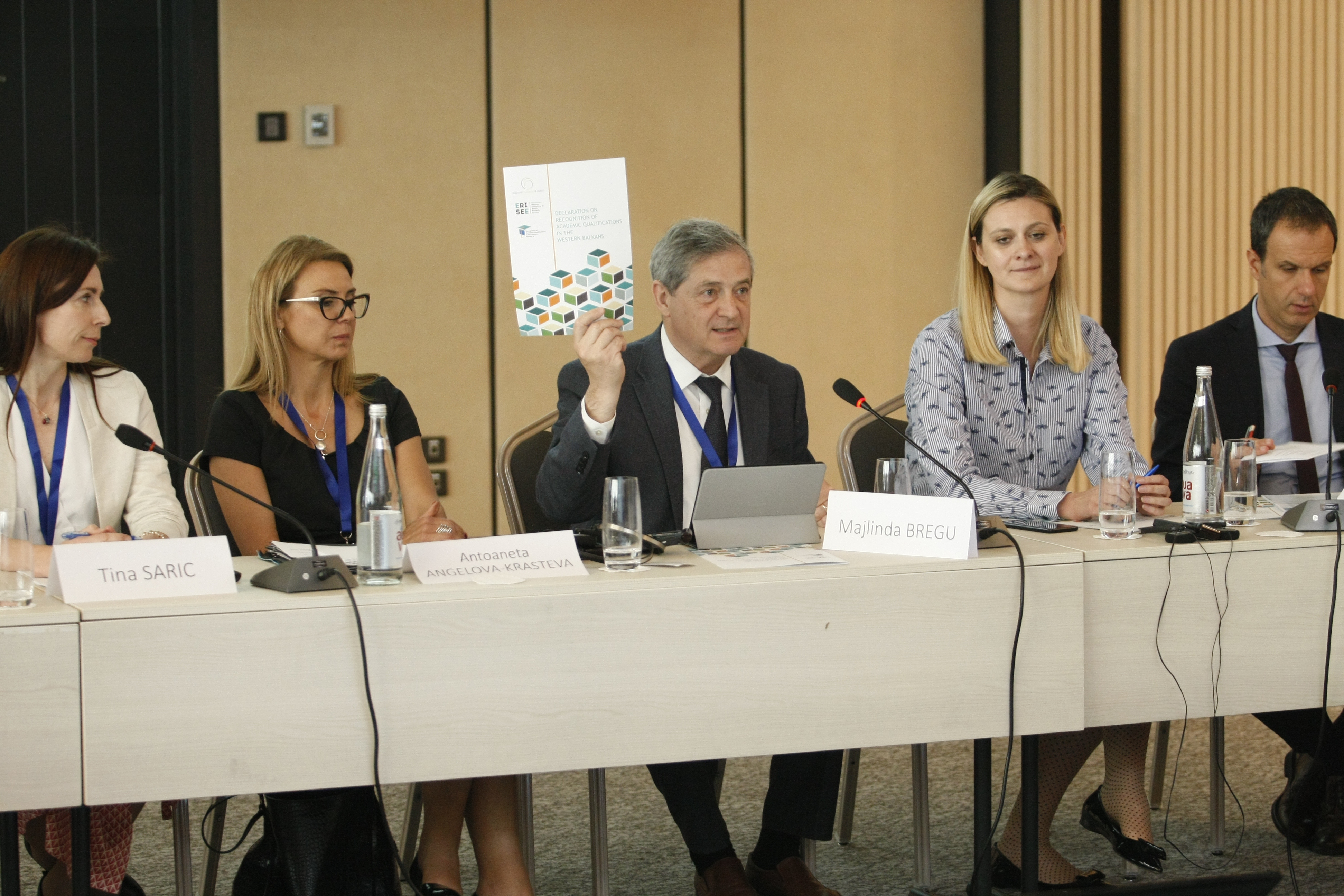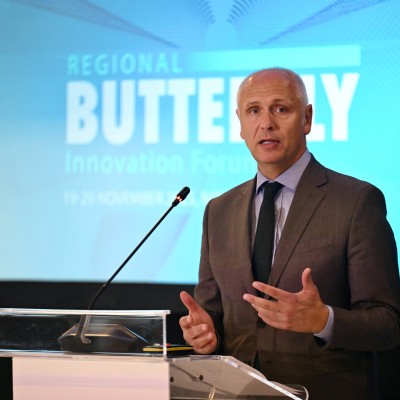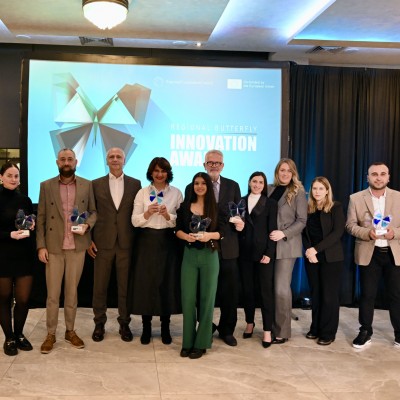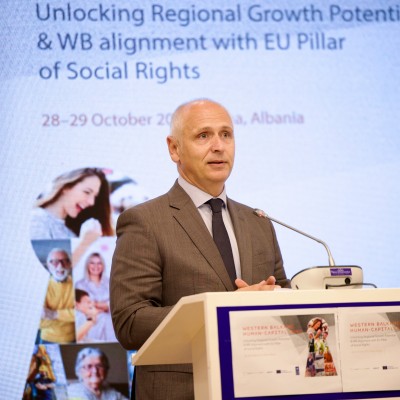Turdiu: Mobility of students is essential for developing common European values, understanding and appreciation of each other’s’ cultures
04 June 2019

Gazmend Turdiu, Deputy Secretary General of the Regional Cooperation Council (RCC), during the discussions with the line ministers from the region devoted to the recognition of academic qualifications in the Western Balkans, in Belgrade, 4 June 2019 (Photo: RCC/Beta/Emil Vaš)
Belgrade – Ministers in charge of education from the Western Balkan (WB) economies have welcomed the Declaration on Mutual Recognition of Academic Qualifications in the Western Balkans, at the 8th Ministerial Meeting of the Western Balkans Platform on Education and Training organized by the European Commission in Belgrade, 3–4 June 2019 Belgrade, Serbia.
The Declaration is to be forwarded to the WB Prime Ministers for their endorsement at Poznan Summit in July. The Declaration tackles mutual recognition of academic qualifications across the region, allows for mobility of students and regional cooperation in higher education, in order to fully align with the principles of the European Higher Education Area outlined in the Bologna process.
“As a region committed to becoming part of the European Union (EU), mobility of students is of particular importance, both within our region and between us and the EU. It is essential for developing common European values, understanding and appreciation of each other’s’ cultures”, said Gazmend Turdiu, Deputy Secretary General of the Regional Cooperation Council (RCC), during the discussions with the line ministers from the region devoted to recognition of academic qualifications in the WB.
“Although, due to high migration flows from our region we might be afraid of encouraging mobility of students, there are intrinsic values to it as our students learn new skills, gain knowledge and competences as well as experience different academic culture; broaden their horizons, and become more independent. I think we could agree that we all want this for our students and youth. To counter our fears, we need to think what our responsibility is to ensure that these students are welcomed back, valued and integrated fully into our labour markets and higher education systems. That their experience contributes to the development of our education systems, our businesses and our societies.”
Tibor Navracsics, EU Commissioner for Education and Culture (DG EAC) in his keynote speech reiterated the importance of recognition of academic qualifications, it being at the heart of the Bologna process, and underpinning all work towards closer cooperation and building the mutual trust.
“How can we work together if our companies, our universities, or our young entrepreneurs can only hire from national pools of talent? Without mutual recognition, we are restricting our ability to build resilience and seize the opportunities created by today’s structural and technological changes. The answer cannot be to lower standards. We need excellence – not just numbers” said Commissioner Navracsics, adding that the recognition of qualifications from another country requires trust that institutions in that country have standards similar to your own.
Confirming their commitment to continued cooperation in this field, the WB Ministers also agreed to jointly work to prepare harmonised operational guidelines and procedures for external quality assurance, i.e. accreditation and reaccreditation of institutions or programmes; initiate expert discussion and prepare expert recommendations on recognition of academic qualifications issued prior to the implementation of the Bologna system of three cycle studies and the third cycle academic degrees by the next Western Balkan Summit in 2020, as well as the comparison of newly adopted national qualifications frameworks in the six WB economies. Also, the initiative includes creation of a joint Database of accredited higher education institutions and programmes and a joint Database of academic qualifications in the WB6 as the basis for creating a “white list” of higher education institutions for which the recognition could be granted automatically.
***
Under the Mobility component of the Multi Annual Plan on Regional Economic Area MAP REA) agreed by the Western Balkans Prime Ministers at the Trieste Summit in 2017, they have recognised the importance of removing obstacles to mobility of students, researchers and academics through joint policies, measures and instruments aimed at increasing academic and research mobility and cooperation.
The RCC together with the Education Reform Initiative of South Eastern Europe (ERI SEE) and with the European Commission’s support, operationalised these commitments into concrete actions that will have a real impact on lives of the students and the youth of the region.



